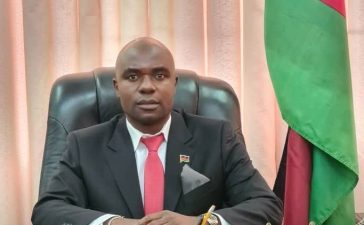
A Lawyer, John Gift Mwakhwawa, writes the following on his Facebook page:
“I will say this with caution. Since we have opened political valves. It is still much safer to criticize the MCP led government. No fear of panga-wielding thugs and all. It was not safe to so do with both the UDF and DPP led governments post 94 in the democratic dispensation. The thievery and thuggery of those two regimes remain unmatched and will so do for a very long time. Even whilst in opposition the thuggery of the DPP is evident and frightening. And to be honest I still live afraid because it’s our very own intellectual friends who fuel our attacks. Been there. When I was last attacked at my offices one colleague had the audacity to ask me: ‘ati anakuyendelani anyamata?’ It was painful. Very painful.”
The reflective words of Advocate Mwakhwawa have echoed the sentiments of many Malawians who have lived through the political turmoil and violence that characterized the Democratic Progressive Party (DPP) regime. Mwakhwawa’s reflections not only spark memories of fear and intimidation but also urge us to confront the grim realities that continue to haunt our democracy.
Under the DPP administration, a culture of thuggery was not just tolerated and encouraged, but also actively funded. The murder of Buleya Lule, a man who was detained to give testimony of the numerous murders of people living with albinism, serves as a chilling reminder of the brutality that permeated the law enforcement system by DPP agents. Lule’s tragic death in police custody revealed the ugly underbelly of a regime that abused power and trampled human rights in its pursuit of control.
Moreover, the widespread atrocities committed against individuals living with albinism during the DPP’s reign cannot be overlooked. The heinous atrocities, often accompanied by a deep-seated culture of impunity, included reported midnight raids, kidnappings and killings of people living with albinism. The DPP government’s apparent indifference to these crimes sent a message that such violence was acceptable. This message was later confirmed when it became clear that big shots in the regime were involved in the ‘harvesting of body parts of people living with albinism for ritual practices aimed at enhancing their power and wealth.
The murder of Issa Njauju, the then director general of the Anti-Corruption Bureau, is yet another stain on the legacy of the DPP. Njauju’s death, intricately linked to a culture of corruption and fear, implicated Norman Chisale, the personal bodyguard of the then-president. The circumstances surrounding Njauju’s killing was so graphic. He was chopped into pieces and bundled into a sack, then buried a few centimeters into the ground near the State House in Lilongwe. The body was revealed by dogs who were plucking his body parts for food. His car was found burnt in Mtandire and his phone was found with an individual who answered that he bought it from a person who turned out to be a relation to Chisale.
The rampant looting of public funds and properties under the DPP regime compounded the disillusionment felt by the citizens. Reports of high-ranking officials pillaging the public purse while citizens struggled to make ends meet characterized a government more interested in self-enrichment than in serving the people. Houses built with taxpayers’ money were stolen in the name of an auction sale that was, in itself, illegal. The systematic extraction of public resources including public land left our country grappling with the legacy of greed and corruption.
Adding further insult to injury, the cadets—armed groups behaving as enforcers of the regime—terrorized citizens, often overruling police authority and positioning themselves as self-proclaimed ‘kings of the streets.’ Many faced threats and beatings for simply expressing dissent, leading to a populace that lived in constant fear.
Today, as we witness the reign of President Lazarus Chakwera, there is a palpable shift in the political landscape. Chakwera’s government, ostensibly aimed at restoring the rule of law and rebuilding trust in public institutions, has made significant strides in promoting transparency and accountability. It is heartening to see a government that encourages open discourse and allows citizens to voice their opinions without the fear of reprisal—something sorely missed under the DPP.
Yet, the comparison serves as a cautionary tale. While the current administration aims to instill safety and trust, remnants of the old regime──the DPP thugs──still exist. Just yesterday, individuals that ought to be honourable as they are members of parliament exhibited the un-dying thuggery by breaching NFRA warehouse security, stormed inside and vandalized identity cards claiming that they had intel that the NRB was indulging in vote rigging scheme. Shamed by the reality of the exact business going on there, they sought refuge in parliamentary proceedings for their defense. Despicable! The system which permits political thuggery must be dismantled to ensure that the sacrifices of those who have suffered under previous regimes do not go in vain.
The words of Mwakhwawa echo a truth we must confront as a nation: while it may be safer to criticize the MCP government, the scars of the DPP era remain deeply etched in our collective memory. We must embrace our democratic rights and hold those in power accountable, ensuring that the past does not repeat itself. Only then can we work towards a true healing for our nation, drawing a clear line between the dark history that was and the hopeful future we aspire to create.












